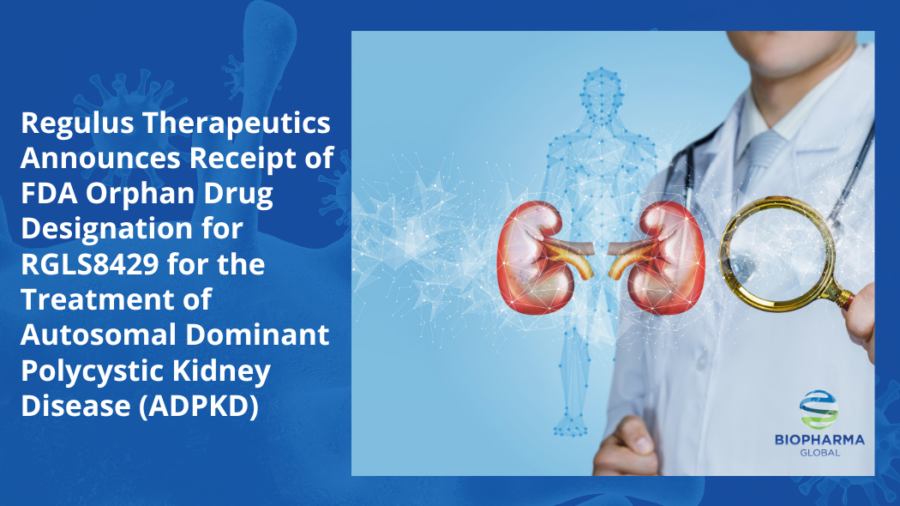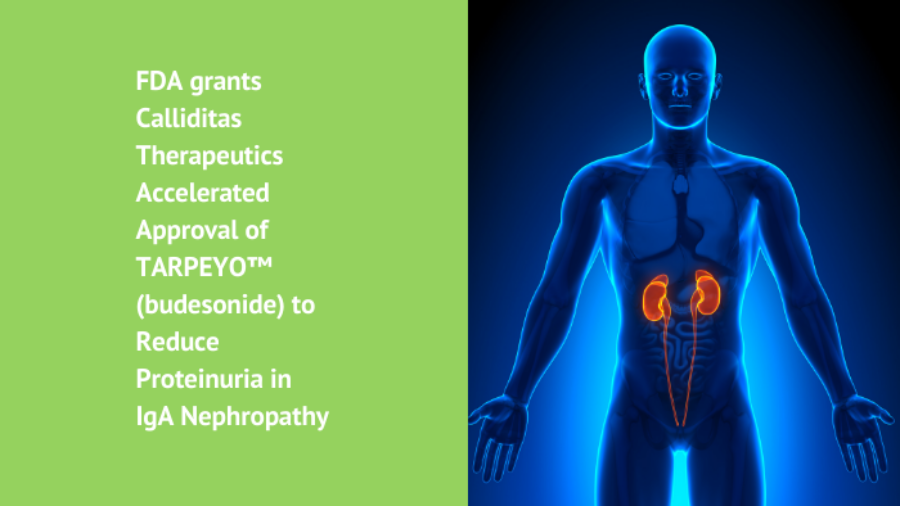SAN DIEGO, June 21, 2022 /PRNewswire/ — Regulus Therapeutics Inc. (Nasdaq: RGLS), a biopharmaceutical company focused on the discovery and development of innovative medicines targeting microRNAs (the “Company” or “Regulus”), today announced that the U.S. Food and Drug Administration (FDA) has granted orphan drug designation (ODD) to RGLS8429 for the treatment of Autosomal Dominant Polycystic Kidney Disease (ADPKD).
“Patients living with ADPKD currently have limited treatment options and approximately half of patients develop end-stage renal disease by age 60 requiring dialysis or transplantation,” commented Jay Hagan, CEO of Regulus Therapeutics. “ADPKD is a disease of high unmet need affecting nearly 160,000 Americans. We look forward to advancing RGLS8429 through the clinic with the goal of improving future treatment options for patients in need.”
The FDA’s Office of Orphan Products Development grants orphan designation status to drugs and biologics that are intended for the safe and effective treatment, diagnosis or prevention of rare diseases, or conditions that affect fewer than 200,000 people in the U.S. Orphan designation status is intended to facilitate drug development for rare diseases and may provide several benefits to drug developers, including financial incentives, to support clinical development and the potential for up to seven years of market exclusivity in the U.S. upon regulatory approval.
Click here to read the full article at Cision PR Newswire
Disclaimer: BioPharma Global is not responsible for, and expressly disclaims all liability for, damages of any kind arising out of use, reference to, or reliance on any information contained within the article. Content available through the site may contain links and information to other websites. Links from BioPharma Global to third-party sites do not constitute an endorsement by BioPharma Global of the mentioned parties.
BioPharma Global is a mission-driven corporation dedicated to using our FDA and EMA regulatory expertise and knowledge of various therapeutic areas to help drug developers advance treatments for the disease communities with unmet medical needs. If you are a drug developer seeking regulatory support for Orphan Drug designation, Fast Track designation, Breakthrough Therapy designation, other FDA/EMA expedited programs, type A, B (pre-IND, EOPs), or C meeting assistance, or IND filings, the BioPharma Global team can help. Contact us today to arrange a 30-minute introductory call.



